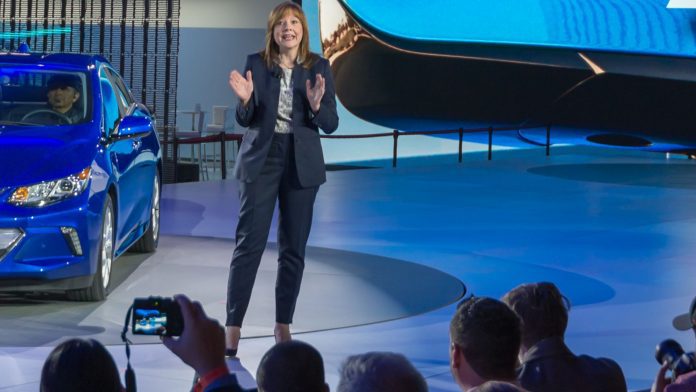General Motors (GM) CEO Mary Barra addressed concerns on Wednesday regarding the potential impacts of higher tariffs on goods imported from Mexico and Canada under the incoming Trump administration. Barra acknowledged that a proposed tariff on goods from these countries could significantly affect GM’s operations but emphasized that such statements are part of negotiation tactics.
Barra’s comments came during her first interview since the November 5th election at an Automotive Press Association gathering in Detroit. She pointed out that President-elect Donald Trump’s 25% tariff proposal is part of the broader negotiation process. Despite the tensions of the past, including disagreements between GM and Trump’s administration over issues like ventilator production during the pandemic and factory closures, Barra noted that she and the automaker share common goals with the President-elect—particularly regarding a strong manufacturing base in the U.S. and fostering growth in the auto industry.
Barra also believed that GM’s relationship with any administration, whether led by President Joe Biden or President-elect Trump, would remain fruitful. “We have collaborated with every administration over the past several decades,” she noted, highlighting the company’s role in providing insights on policy implications for the automotive sector.
In addition to discussing tariffs and trade policies, Barra briefly mentioned Elon Musk, CEO of Tesla and a significant advisor to Trump. While she refrained from commenting on Musk’s role as an auto industry ambassador, she pointed out potential opportunities for improving government processes by establishing the new Department of Government Efficiency (DOGE), especially concerning permitting. “When everything must proceed in series rather than in parallel, that’s when it can take up to 10 years to get permits approved,” Barra explained, advocating for more streamlined regulatory procedures processes.
Another focus point was the future of EVs under the new administration. Trump intends to roll back certain policies that have boosted EV adoption, including the $7,500 tax credit for EVs. Barra highlighted the critical role of these incentives, stating that “IRA, especially the $7,500 tax credit, is driving demand” for electric vehicles. She added that without these incentives, demand for EVs could slow, potentially affecting GM’s growing electric lineup.
Despite concerns about policy changes, GM’s EV sales have increased. In the third quarter of 2024, GM reported a 60% increase in EV sales year-over-year, with a 46% increase from the previous quarter. GM also reached a record high in electric vehicle deliveries, with 32,095 units sold, making it the second-largest EV seller in the U.S. behind Tesla.
As GM continues to expand its electric vehicle offerings, these shifts in policy—particularly around tariffs and government incentives—will play a pivotal role in shaping the future of GM and the broader automotive industry.




